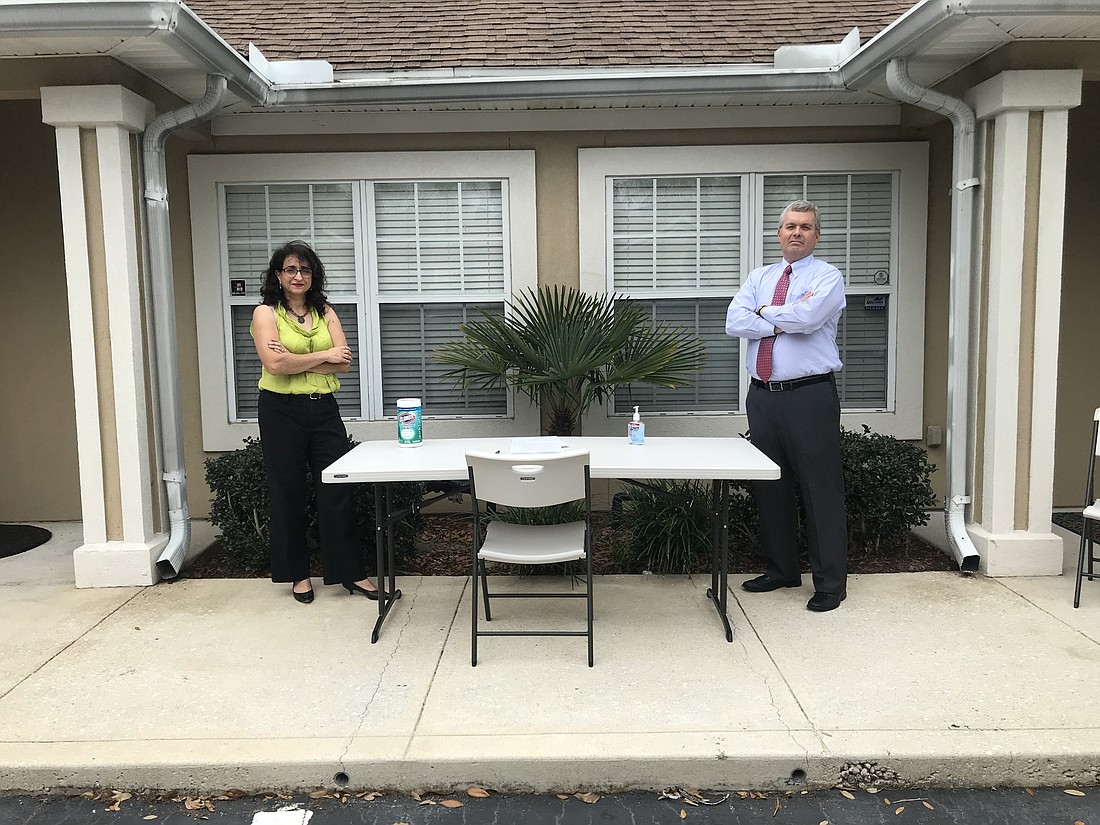
For most of the legal community, the transition to practicing remotely while social distancing at home has been relatively smooth.
Communication with clients and colleagues moved from face-to-face to the telephone and the internet. Courts are convening via teleconference, including for adoptions and first-appearance bond hearings.
The transition hasn’t been so easy for attorneys who practice real property, probate and trust law.
In Florida, certain documents related to that area of law, such as estate planning and wills, must be signed and witnessed in person.
The state Legislature approved the remote signing of wills in its last session, but the law doesn’t become effective until July 1. Until then, lawyers are findings ways to meet the current legal requirements.
“Attorneys are taking to their sidewalks and parking lots to have clients sign the documents,” said Rose Marie Preddy, founder of Preddy Law Firm at 12627 San Jose Blvd.
“My staff won’t see clients, but I partnered with another lawyer, so we help each other in the parking lot to help the client,” she said.
Preddy said the COVID-19 pandemic makes it even more important for people to execute documents such as durable power of attorney, designation of health care surrogate and living will.
With those documents in force, “if you are quarantined at home, in a senior care facility or in the hospital, you have someone to step in for you when you need it the most,” Preddy said.
The Real, Property, Probate and Trust Law Section of The Florida Bar distributed a four-page memorandum to explain why the effective date of the new law can’t take effect now to mitigate COVID-19 pandemic safety requirements.
The memo says the courts don’t have jurisdiction because “to change this long-standing principal of law that is entrenched in Florida’s case law would require the courts to overrule existing precedent, which is not possible without an existing case or controversy.”
Another suggestion is that Gov. Ron DeSantis could sign an executive order to suspend the current requirements or change the effective date of the law to immediately allow electronic signatures and remote witnessing.
That won’t work because there are potential constitutional roadblocks to that solution.
While the governor does have the power during a state of emergency to issue executive orders dispensing with some legal requirements, those powers are limited, the Bar concluded.
“Our analysis leads us to believe that such an order does not appear to fit neatly into any expressed executive power,” the memorandum states.
According to The Florida Bar Real Property, Probate and Trust Law Section:
“The safest solution is for the legislature to act. If a special session is called, the Section in all likelihood will: (i) support an earlier effective date for electronic will executions, provided that existing safeguards remain in place; or (ii) offer new legislation to address the issues we face.
“Rest assured the Section is actively working on possible new legislation so that the Section’s leadership will be in a position to move quickly if a special session is called. The Section has been in contact with the Elder Law and Tax Law Sections of the Florida Bar to try to coordinate efforts. Until that time, we do not believe there is anything the Section can do to resolve the execution issues that will not create a risky situation that could jeopardize the validity of documents for years to come.”
In the meantime, Preddy said attorneys are doing what’s needed to serve their clients, even if that means meeting them in the parking lot with their documents and a bottle of hand sanitizer.
“It’s not ideal, but we are trying to make it work,” she said.